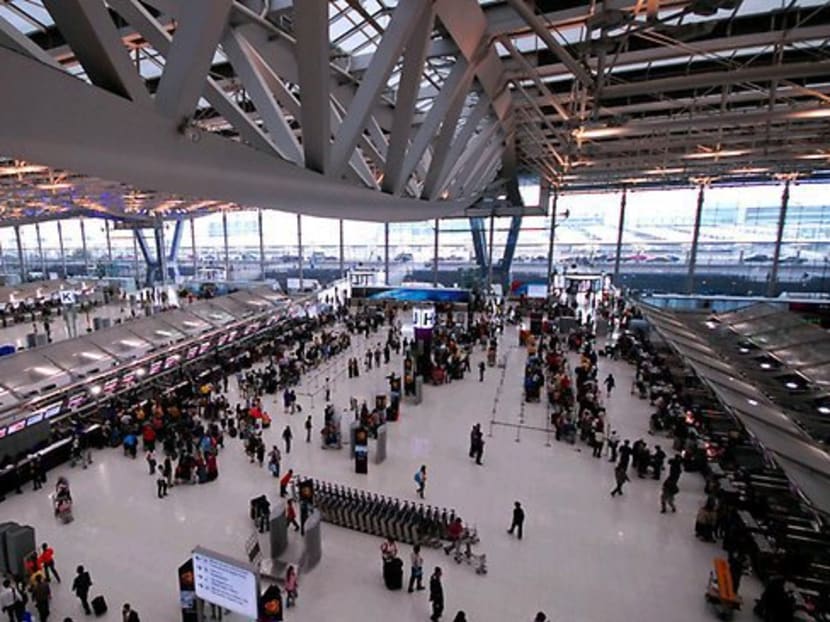A do-what-we-want law in Thailand may enable new airport runway
BANGKOK — In a move that may be cheered by tourists but faulted by democracy campaigners, Thailand's military junta aims to use a special-powers rule to speed up the approval of a new runway at Bangkok's increasingly stretched main airport.
BANGKOK — In a move that may be cheered by tourists but faulted by democracy campaigners, Thailand's military junta aims to use a special-powers rule to speed up the approval of a new runway at Bangkok's increasingly stretched main airport.
The measure known as Article 44 makes any action the junta takes "lawful, constitutional and final" and it has been used for everything from banning protests to giving soldiers authority to arrest people. It has also been invoked to kick off a slew of infrastructure projects that the slowing economy badly needs.
"We may proceed with the third runway as soon as possible," Transport Minister Arkhom Termpittayapaisith said in an April 29 interview. "Article 44".
Mr Arkhom said that the special powers would likely be used to speed up an environmental impact assessment for the project at Suvarnabhumi Airport. He said the powers will also likely be used for the government's planned high-speed rail projects, as they have already been used to push through three out of seven planned double-track projects.
Thailand is spending about US$83 billion (S$111 billion) over the next seven years to build new railways, roads and customs checkpoints to remove bottlenecks that hamper trade with its neighbours. Many of the planned railways will have two tracks, as opposed to the current single track, which slows down both passengers and freight as trains must wait for other trains passing in the opposite direction.
HIGH-SPEED RAIL
The government is also negotiating with China and Japan to construct high-speed rail networks that may connect the nation's manufacturing and shipping hubs with buyers and suppliers stretching from Yunnan in southern China to India's north-eastern frontier. Thailand slashed the length of the China route, which will now terminate in the central Thai town of Nakhon Ratchasima, about 400km short of the Thai-Laos border.
Mr Arkhom said the door remains open to further negotiation with the Chinese.
Japan plans to invest in a 574km east to west dual-track rail line linking Kanchanaburi, Bangkok and Chachoengsao and extending to Sa Kaew and Rayong, and a 670km high-speed train route from Bangkok to Chiang Mai.
Former Finance Minister Kittiratt Na-Ranong, who was a member of the government that the military ousted in 2014, is pleased his successors are now getting going on infrastructure spending. He said in an interview last week that it should have come together faster.
"They've lost one and a half years doing nothing," he said.
Mr Kittiratt, who championed his own major investment program, said that at least his "ideas can be implemented" — even if the junta stays in power for two decades. BLOOMBERG







